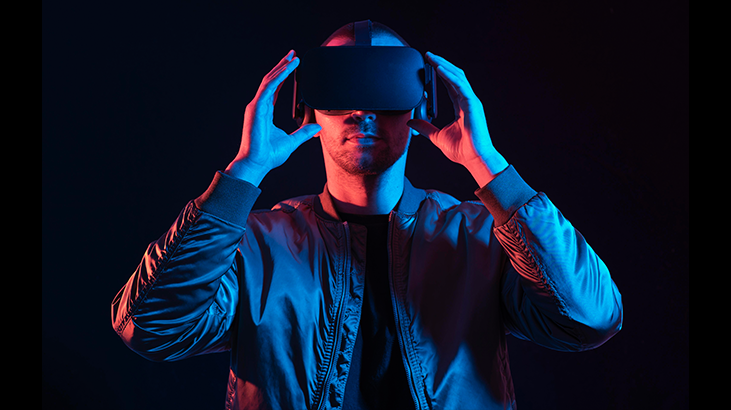How Virtual Reality is Shaking Up the Entertainment Industry

It’s changing the way we experience entertainment. Whether you’re a gamer, a movie buff, or just someone who loves exploring new tech, VR offers an exciting and immersive way to dive into different worlds. From how we play games to how we watch movies and attend live events, VR is making everything more interactive and engaging. Let's take a closer look at how VR is shaking up the entertainment industry and what it means for the future of fun.
VR has come a long way from its early days, but gaming was where it all started. When the Oculus Rift first hit the scene, it blew people’s minds. Gamers could put on a headset and suddenly be inside the game, looking around and interacting with the environment as if they were there. This was a huge leap from traditional gaming, where you’re just staring at a screen and controlling a character with a controller. VR made it feel like you were part of the action.
But it wasn’t just about being able to look around in a 360-degree environment. VR gaming also introduced new ways to interact with games. With motion controllers, you could reach out and grab objects, swing a sword, or shoot a bow and arrow—all with natural movements that mimicked real life. This level of immersion was something gamers had never experienced before, and it quickly caught on.
After making waves in the gaming world, VR started to spread to other forms of entertainment, like movies and TV shows. Imagine being able to step inside your favorite movie and explore the world alongside the characters. That’s what VR is making possible.
Instead of just watching a movie, you can now experience it. VR films allow viewers to look around and choose where to focus their attention. This creates a much more personal and interactive experience. For instance, in a horror movie, you might turn your head and see something creepy sneaking up behind you, or in an action film, you could be right in the middle of a high-speed chase, looking around as if you’re in the driver’s seat.
TV shows are also starting to experiment with VR. Some shows offer VR episodes or extra content that lets fans dive deeper into the story. This kind of content adds a whole new layer to storytelling, making it more immersive and engaging. It’s no longer just about sitting back and watching—you’re now a part of the narrative.
One of the most exciting developments in VR entertainment is its ability to bring live events to you, no matter where you are. Concerts, sports events, and even theater performances can now be experienced in VR, giving you a front-row seat from the comfort of your own home.
VR concerts have become especially popular, with artists and bands hosting virtual shows that fans can attend from anywhere in the world. These aren’t just recordings of live performances—VR concerts are designed to be fully immersive. You can look around the stage, see the crowd, and even interact with other fans. Some VR concerts also offer behind-the-scenes access or exclusive content, making the experience even more special.
Sports fans can also get in on the action with VR. Imagine being able to watch a football game from the sidelines or sitting courtside at an NBA game. VR makes this possible, allowing you to experience the game from different angles and perspectives. This kind of immersive viewing experience brings you closer to the action than ever before.
Theme parks are changing with the addition of VR technology. Some roller coasters now have VR headsets that riders wear for an enhanced experience. These headsets sync up with the twists and turns of the coaster, creating an exciting, unique experience. Visitors can also explore entirely virtual attractions where they can solve puzzles or go on adventures. These interactive experiences allow guests to make choices and influence the outcome of the story.
However, there are challenges to VR in entertainment. High-quality VR gear can be expensive, making it hard for some people to try VR. Some people also experience discomfort or nausea when using VR, especially during fast-paced experiences. Despite these challenges, the future of VR in entertainment looks promising. As technology improves, we can expect even more immersive and interactive experiences. VR is also likely to become more social, allowing people to connect and share experiences in virtual spaces.
Virtual Reality is changing entertainment. It's not just for games anymore. Now, it's also in movies, live events, and theme parks. VR makes entertainment more immersive and interactive. It's getting more popular, and there's a lot of potential. As technology improves, we'll see even more cool uses for VR in the future. Whether you love games, movies, or new tech, VR has something for everyone. This is the future of entertainment, and it's more immersive than ever!